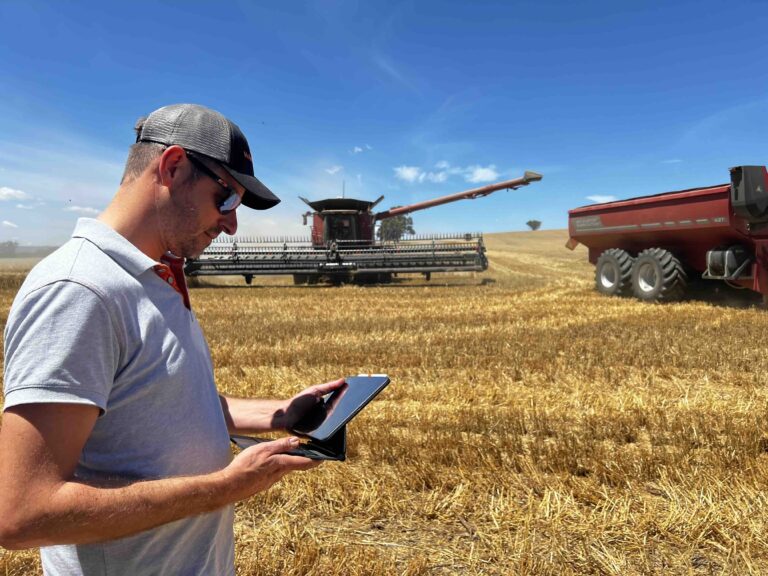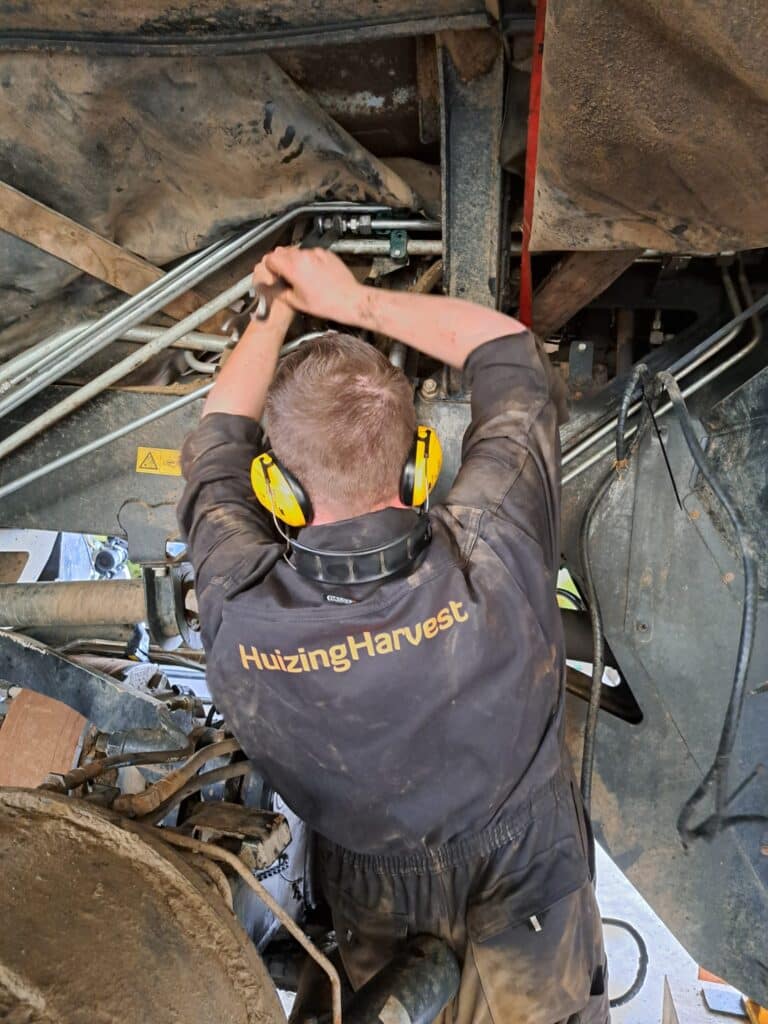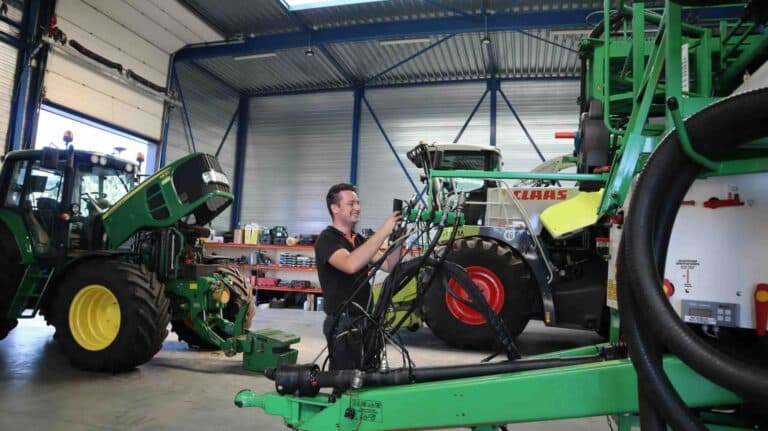On the Road to Hungary
With the van fully packed and an extra tool cabinet installed, it’s time to hit the road! “On the first day of the job, we set off early to arrive on time,” says Gerben. “A mechanic from the client’s team is there to answer any questions before we get to work.”
Once on-site, the machine is set up, and the work begins. “We remove the wheels, take out old parts, and install the new ones. We use our own equipment or borrow tools from the client. Whether we have a heated workshop or access to a forklift is something we always check in advance.”
Then comes the hydraulic work—replacing hoses, pumps, and valves, as well as making electrical adjustments. This part of the job requires precision and attention to detail.
Adapting to Different Workplaces
Every week means a different workshop, different machines, and new people. “That makes the job exciting, but it also means we have to stay alert when it comes to safety. Every location is different, so you need to be flexible and adapt to the situation,” Gerben explains
Working hard and staying healthy
“Working abroad is an amazing experience, but you have to look after yourself too,” says Gerben. “We usually stay in good hotels and make sure we get a decent meal in the evening. Breakfast is sorted in the hotel, and we always plan ahead for lunch. In some places, food options can be limited, so it’s important to think ahead.”
Testing and Moving On
After a few days of hard work, it’s time to test the machine. “Does everything work as expected? Are there any leaks? Once we’re sure the machine is running smoothly, we pack up and move on to the next job. A happy client, a well-functioning machine, and another great experience under our belts!”
Curious to Learn More?
Join our online webinar on 24 March 2025 and get an inside look at working as an international mechanic in agrotechnics.
In just 30 minutes, Erik Kramer & Michel Wesselink will share their experiences on:
– What it’s like to work as a mechanic in agrotechnics.
– The reality of working internationally.
– How you can start your journey with HuizingHarvest.
📢 Please note: this webinar will be conducted in Dutch.
Ask your questions live and get a unique behind-the-scenes view of our work!


